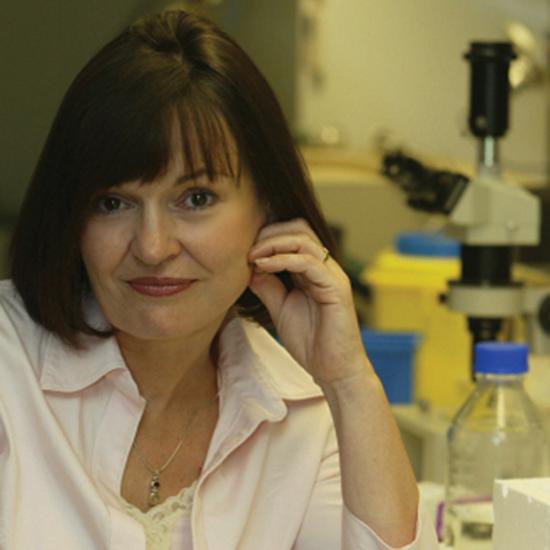Carol Robinson is a chemist who has pioneered the application of mass spectrometry techniques to problems in chemical biology. Her groundbreaking research on the three-dimensional structure of proteins in particular has demonstrated the power of such techniques in studying large molecular compounds.
Much of her research has involved pushing the limits of electrospray mass spectrometry, demonstrating that important complexes can be generated and studied in the gas phase. In addition to her contributions to the study of protein folding, Carol has conducted important work on ribosomes, molecular chaperones and most recently membrane proteins.
The first female Professor of Chemistry at both Oxford and Cambridge universities, in 2013 she was awarded the title of Dame Commander of the Order of the British Empire for her services to science. Carol was also the recipient of the Royal Society’s prestigious Rosalind Franklin Award and Davey Medal, in 2004 and 2010, respectively. In 2015, she was the European Laureate of the L’Oreal–UNESCO for Women in Science Award.
Professional position
- Dr Lee’s Professor of Chemistry, Physical and Theoretical Chemistry Laboratory, University of Oxford
- President, Royal Society of Chemistry
Subject groups
-
Chemistry
Chemistry, applied
-
Molecules of Life
Biochemistry and molecular biology
Awards
-
Davy Medal
For her ground-breaking and novel use of mass spectrometry for the characterisation of large protein complexes.
-
Royal Society Rosalind Franklin Award and Lecture
Used her award to organise an away day for final year female PhD students to network and discuss their research and future career paths.
-
Royal Medal
For her pioneering work on structural biology improving the understanding of proteins, their interactions and functional regulation.

